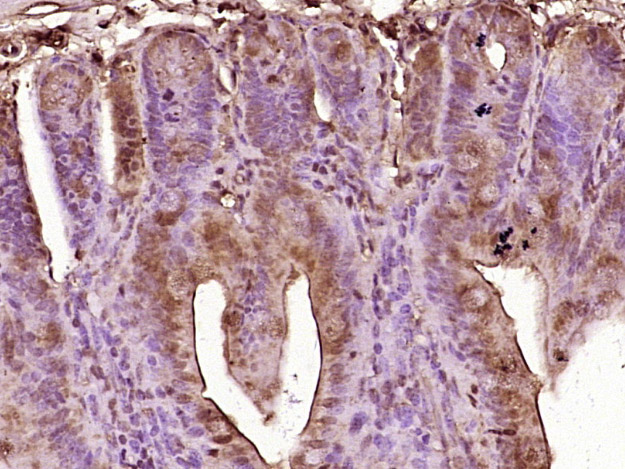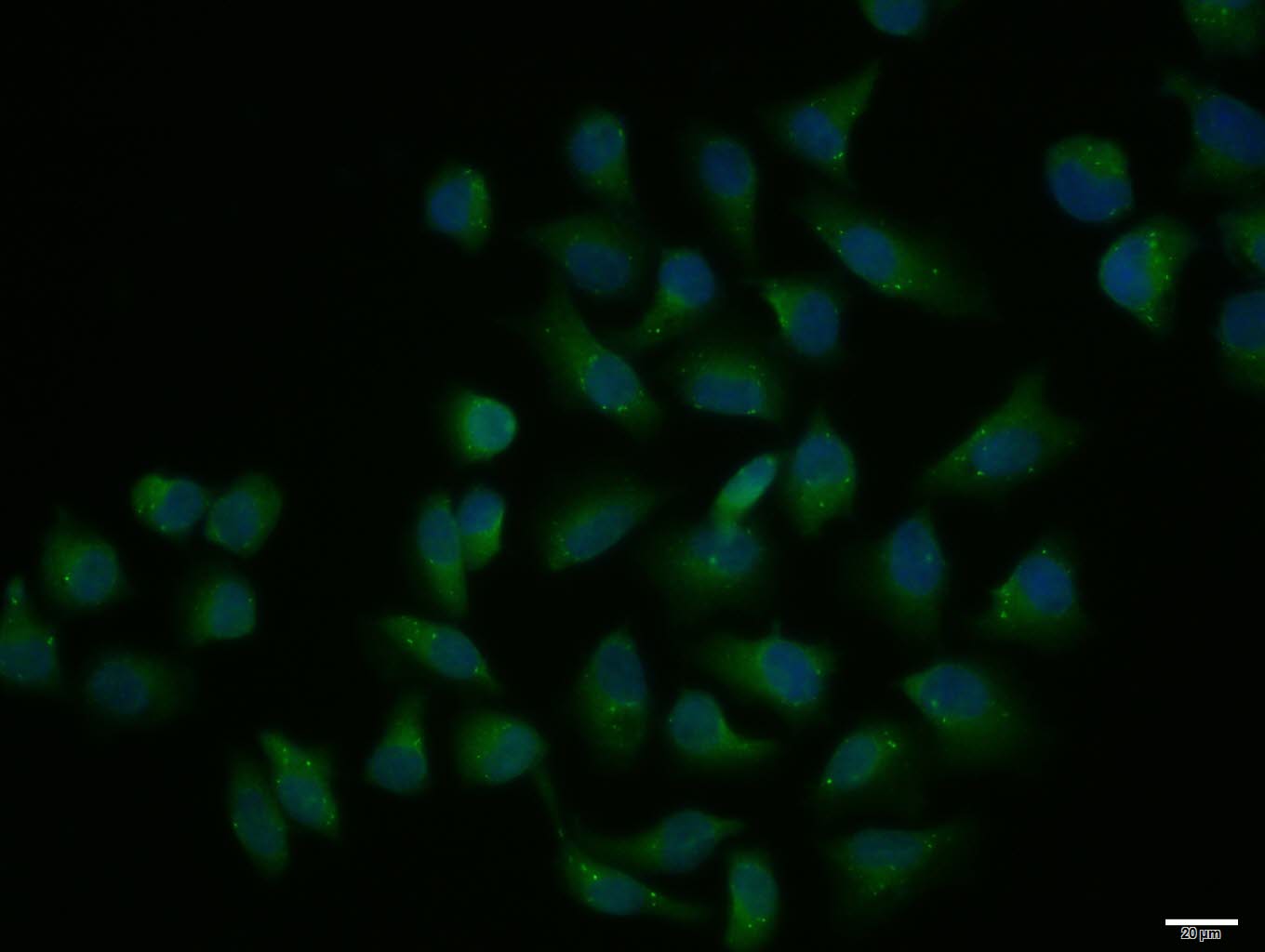
Rabbit Anti-GIP antibody
Gastric Inhibitory polypeptide; Glucose dependent insulinotropic polypeptide; Gastric Inhibitory Peptide; GIP_HUMAN; Glucose-dependent insulinotropic polypeptide; Incretin hormone.
View History [Clear]
Details
Product Name GIP Chinese Name 胃泌素抑制肽抗体 Alias Gastric Inhibitory polypeptide; Glucose dependent insulinotropic polypeptide; Gastric Inhibitory Peptide; GIP_HUMAN; Glucose-dependent insulinotropic polypeptide; Incretin hormone. Research Area Signal transduction Growth factors and hormones transcriptional regulatory factor Diabetes Immunogen Species Rabbit Clonality Polyclonal React Species Human, Mouse, (predicted: Rat, Pig, Cow, ) Applications WB=1:500-2000 ELISA=1:5000-10000 IHC-P=1:100-500 IHC-F=1:100-500 ICC=1:100 IF=1:100-500 (Paraffin sections need antigen repair)
not yet tested in other applications.
optimal dilutions/concentrations should be determined by the end user.Theoretical molecular weight 5/17kDa Cellular localization Secretory protein Form Liquid Concentration 1mg/ml immunogen KLH conjugated synthetic peptide derived from human GIP: 52-93/153 Lsotype IgG Purification affinity purified by Protein A Buffer Solution 0.01M TBS(pH7.4) with 1% BSA, 0.03% Proclin300 and 50% Glycerol. Storage Shipped at 4℃. Store at -20 °C for one year. Avoid repeated freeze/thaw cycles. Attention This product as supplied is intended for research use only, not for use in human, therapeutic or diagnostic applications. PubMed PubMed Product Detail GIP (Gastric Inhibitory polypeptide ) belongs to the glucagon superfamily. The encoded protein is important in maintaining glucose homeostasis as it is a potent stimulator of insulin secretion from pancreatic beta-cells following food ingestion and nutrient absorption. This gene stimulates insulin secretion via its G protein-coupled receptor activation of adenylyl cyclase and other signal transduction pathways. It is a relatively poor inhibitor of gastric acid secretion. Mature GIP is a highly conserved 42 amino acid polypeptide belonging to the glucagon family. GIP is highly expressed as a pre-pro-protein in the duodenum and the jejunum. The mature secreted polypeptide acts as a potent stimulator of insulin secretion and a poor inhibitor of gastric acid secretion.
Function:
Potent stimulator of insulin secretion and relatively poor inhibitor of gastric acid secretion.
Subcellular Location:
Secreted.
Similarity:
Belongs to the glucagon family.
SWISS:
P09681
Gene ID:
2695
Database links:Entrez Gene: 2695 Human
Omim: 137240 Human
SwissProt: P09681 Human
Unigene: 1454 Human
胃泌素抑制肽(GIP)是胃肠道的一种由42个氨基酸组成的多肽激素,又称为葡萄糖依赖性促胰岛素多肽(glucose-dependent insulinotropic peptide,GIP)他强烈抑制胃分泌和运动,也可调节胰岛素的释放。GIP属于Glucagon家族成员。Product Picture
References (0)
No References
Bought notes(bought amounts latest0)
No one bought this product
User Comment(Total0User Comment Num)
- No comment




 +86 571 56623320
+86 571 56623320
 +86 18668110335
+86 18668110335

